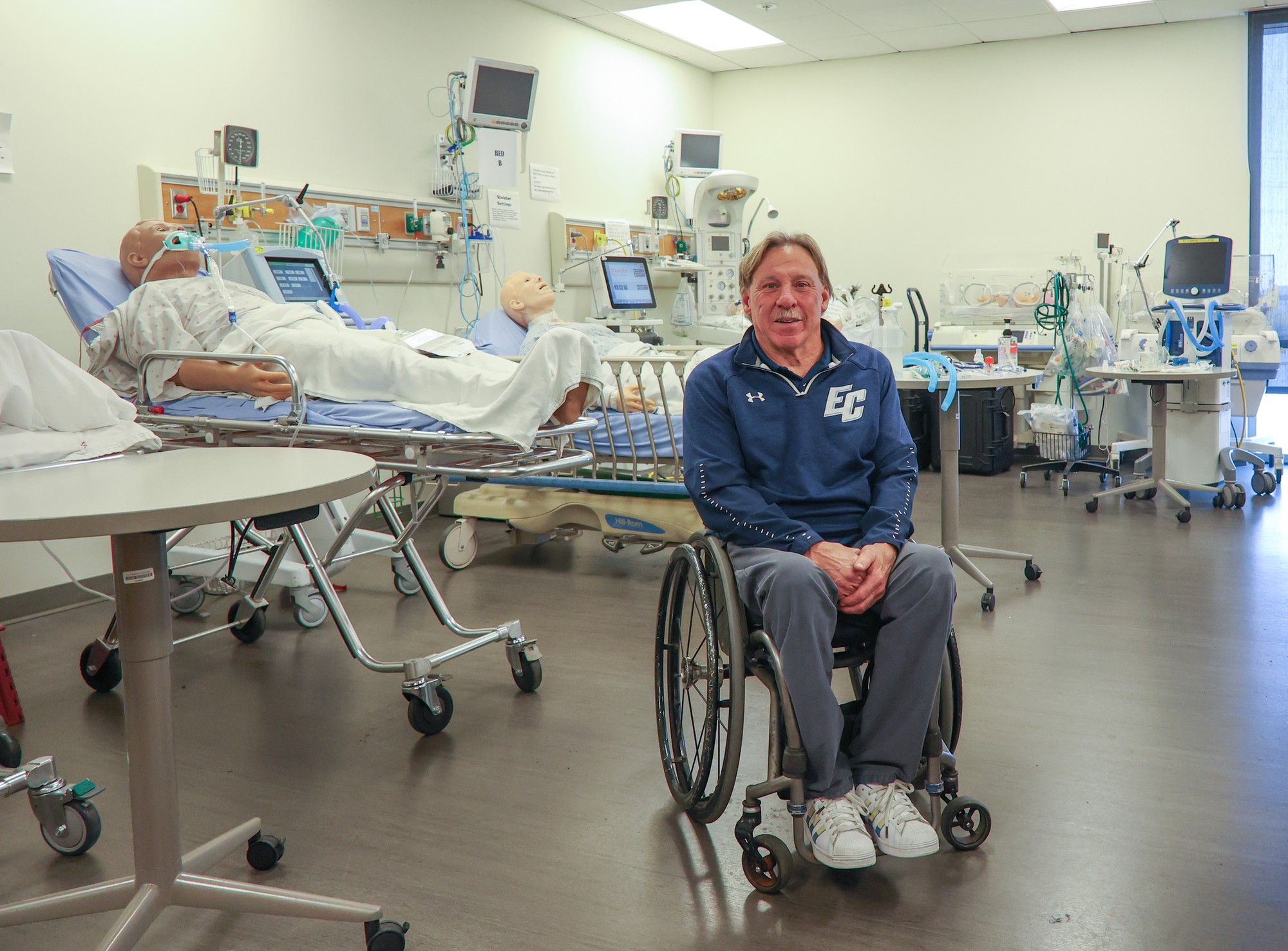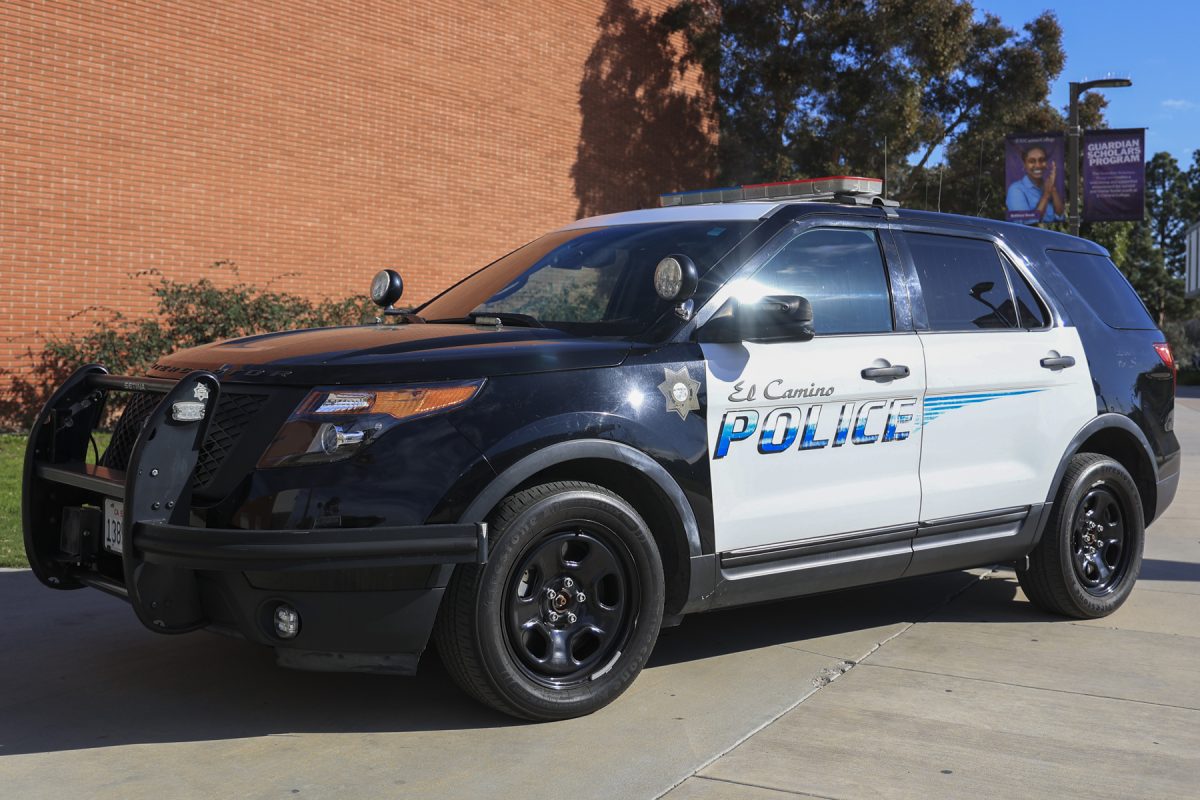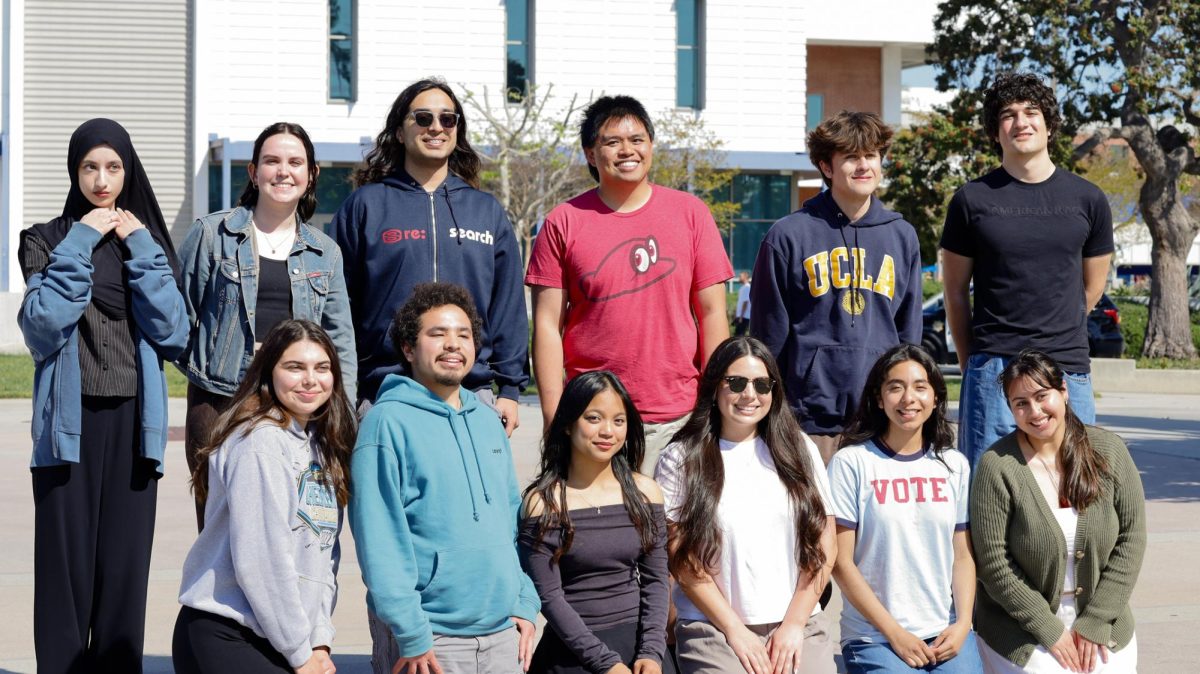Respiratory Care Practitioner and El Camino College student Priscilla Fleming said her lifelong passion for helping others was influenced by her single mother, who never hesitated to help anyone she came across.
Fleming, 36, said she inherited her mother’s traits, who similarly wants to care for people.
Fleming has a background in physical therapy and wanted to continue pursuing her education in a similar field, prompting her decision to enroll in El Camino’s respiratory care bachelor’s degree program.
She said the program has the potential to be “very impactful,” as the affordability of the bachelor’s degree has provided financial alleviation.
“It’s economically, a very, very, huge opportunity,” Fleming said. “Not only for me, but I’m pretty sure for the other students [as well].”
Fleming said the program has allowed her to emulate her mother and fulfill her passion for helping others, particularly sick people.
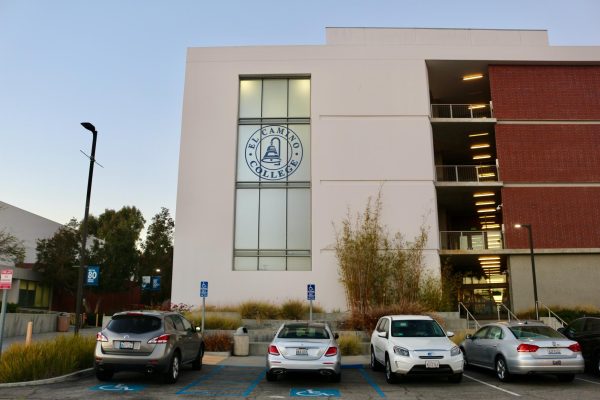
First launched in August, the respiratory care bachelor’s degree is a new program at El Camino.
However, the planning efforts began eight years ago, as soon as the Academic Affairs Division of the California Community Colleges Chancellor’s Office started seeking program applications. El Camino is one of the few California community colleges offering a bachelor’s degree program.
According to a California Community College Chancellor’s Office press release, 33 out of 116 California community colleges are now offering or will soon offer bachelor’s degree programs.
Besides making higher education more accessible for students, the implementation of bachelor’s degree programs has the potential to alleviate regional workforce demand once students have graduated.
With a projected increase in demand for various jobs in California, Bachelor’s degree programs could help provide students with an accessible opportunity to fill those positions, according to the California Community College Chancellor’s Office website.
The decision to authorize statewide bachelor degree pilot programs at California community colleges was initiated by Gov. Jerry Brown, on Sept. 28, 2014, when he signed Senate Bill 850.
Senate Bill 850 initiated the first cycle of applications from colleges interested in participating in the cohort. By May 2015, the Board of Governors had approved 15 community colleges to participate in establishing baccalaureate degree pilot programs.
For a bachelor’s degree program to be implemented at a California community college, there has to be evidence of a regional workforce need. The programs are required to demonstrate they will provide students with career opportunities following completion, according to the California Community College Chancellor’s website.
Santa Monica College offers an interaction design bachelor’s degree.
Rio Hondo College offers an automotive technology bachelor’s degree while West Los Angeles College offers two bachelor of science degrees; dental hygiene and aviation maintenance technology: avionics.
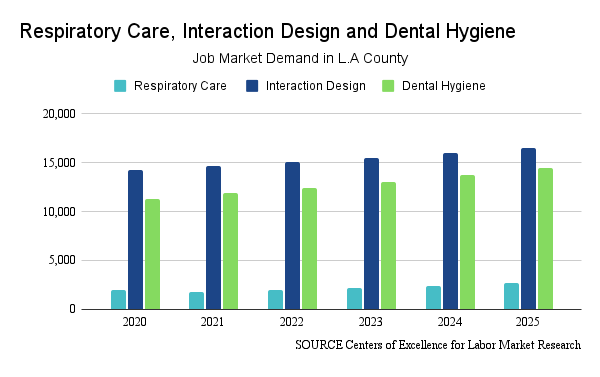
Paul Feist, vice chancellor for communications and marketing at the California Community College Chancellor’s Office, said the framework for action recently adopted by the California Community Colleges is titled Vision 2030.
The framework document lays out a strategic plan for the next seven years.
Feist said there are three major goals for the vision, “Equity in success, equity in access and equity in support.”
One of the major pillars of Vision 2030 is equitable baccalaureate attainment.
Feist said community colleges have been trying to focus on equitable baccalaureate attainment through their support of the transfer process, along with efforts to introduce bachelor’s degree programs at community colleges to meet specific workforce needs in California.
According to California Competes, 6.8 million Californians have a high school degree but no college credential, meaning they do not have a certificate, associate degree or bachelor’s degree.
Baccalaureate programs can benefit Californians by giving them more access to a college experience and by providing the opportunity to improve their social and economic mobility, Fiest said.
Fiest said 63% of the students in the first bachelor’s degree pilot program were receiving financial aid, students of color and first-generation college students.
“This is reaching a type of student that, you know, has not always been represented in higher education, so that’s important to us,” Fiest said.
There are many goals in pursuing Vision 2030, Feist said but reaching underserved communities and meeting workforce needs are “certainly important ones.”
El Camino Dean of Health Sciences and Athletics Russell Serr was involved in the college’s bachelor program approval process.
Serr said he worked closely with his faculty members to submit all the approvals in 2015, back when the first cycle of program applications was being accepted by the Academic Affairs division of the California Community Colleges Chancellor’s Office.
These included the Strong WorkForce Los Angeles area consortium approval, the Accrediting Commission for Community and Junior Colleges approval and the chancellor’s approval.
“The part of this program that took the most work was done by the faculty, the faculty has to write all of the curriculum,” Serr said. “They would build all of these classes, including the [general education] ones.”
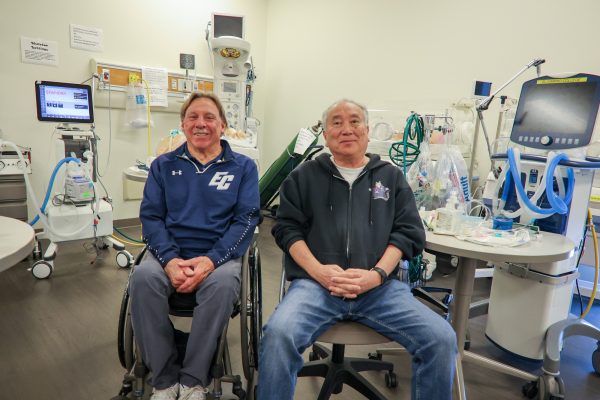
Serr said the goal of El Camino’s bachelor’s degree program is accessibility. He said socioeconomic status creates barriers for students. Removing the barriers for underserved students is a huge goal of the bachelor’s degree program.
“Equity, diversity and inclusion is on the forefront of almost everything we do here at the college,” Serr said. “This aligns with the college’s mission and with the goals of the California Community Colleges Chancellor’s Office.”
The bachelor’s degree programs offered at California community colleges address unmet workforce needs in areas that are not yet addressed or duplicated by any educational programs within the University of California or California State University systems to be approved, according to the Chancellor’s website.
The job market demand in Los Angeles County projects an overall increase in demand for occupations including respiratory care, interaction design and dental hygiene, according to data from the Center of Excellence for Labor Market Research.
From 2020-2025, respiratory care is expecting an 11% job market demand increase, dental hygiene a 5% increase and interaction design a 3% increase.
“There was a shortage in the workforce,” Roy Mekaru, El Camino faculty coordinator and program director for respiratory care said. “This was an opportunity for El Camino to provide our graduates and other graduates an [economically feasible] opportunity.”
San Diego City College also has a new baccalaureate degree, approved this year for cyber defense and analysis.
San Diego City Cyber Defense Program Director David Kennemer said the program aims to “best serve as many students.”
The college has a high information technology and cyber security demand, said Kennemer, who is also an associate professor of industry technologies. He said the job outlook is high and students can fill those roles.
“[The goal is to] help the students get into resilient and high-paying jobs and meet the regional need,” he said.
According to The Center of Excellence for Labor Market Research, there are projected to be 3,553 cybersecurity jobs available annually within the next five years in the Los Angeles County region due to new job growth and replacements.
“It’s all about providing students that opportunity to get into that job,” Kennemer said. “Something that makes a difference in their lives, their communities.”
Feist cited data collected from the Pilot Cohort Programs which found the bachelor’s degree programs at community colleges allow students to earn a four-year degree for a total of $10,560, which is less than half the tuition at even the most affordable public universities.
Back at El Camino, Fleming said she believes there are a lot of students who are more inclined to pursue their education and “take that step” because the bachelor’s degree program makes it much more affordable.
“I have two kids, I have a family and I just started working, so it is very important to do a program that I know is going to be helpful in the future,” Fleming said. “It’s cheaper than other programs at the moment, that really helps a lot, just [removes] the burden of not paying huge loans and stuff like that.”


